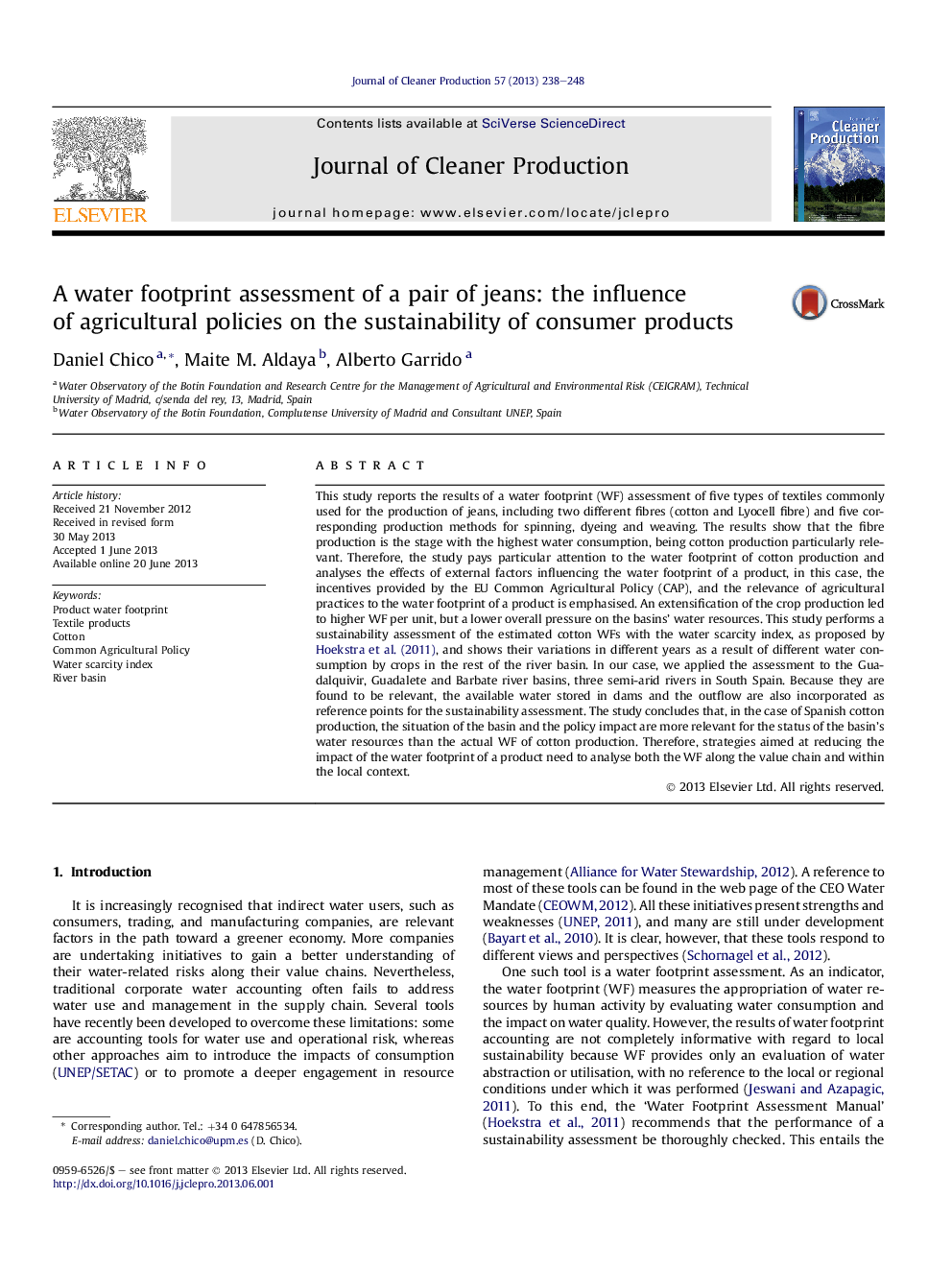| کد مقاله | کد نشریه | سال انتشار | مقاله انگلیسی | نسخه تمام متن |
|---|---|---|---|---|
| 8107505 | 1522189 | 2013 | 11 صفحه PDF | دانلود رایگان |
عنوان انگلیسی مقاله ISI
A water footprint assessment of a pair of jeans: the influence of agricultural policies on the sustainability of consumer products
ترجمه فارسی عنوان
ارزیابی رد پای آب از یک جفت شلوار جین: تاثیر سیاست های کشاورزی بر پایداری محصولات مصرفی
دانلود مقاله + سفارش ترجمه
دانلود مقاله ISI انگلیسی
رایگان برای ایرانیان
کلمات کلیدی
راندمان آب محصول، محصولات نساجی، پنبه، سیاست مشترک کشاورزی، شاخص کمبود آب، حوضه رودخانه،
موضوعات مرتبط
مهندسی و علوم پایه
مهندسی انرژی
انرژی های تجدید پذیر، توسعه پایدار و محیط زیست
چکیده انگلیسی
This study reports the results of a water footprint (WF) assessment of five types of textiles commonly used for the production of jeans, including two different fibres (cotton and Lyocell fibre) and five corresponding production methods for spinning, dyeing and weaving. The results show that the fibre production is the stage with the highest water consumption, being cotton production particularly relevant. Therefore, the study pays particular attention to the water footprint of cotton production and analyses the effects of external factors influencing the water footprint of a product, in this case, the incentives provided by the EU Common Agricultural Policy (CAP), and the relevance of agricultural practices to the water footprint of a product is emphasised. An extensification of the crop production led to higher WF per unit, but a lower overall pressure on the basins' water resources. This study performs a sustainability assessment of the estimated cotton WFs with the water scarcity index, as proposed by Hoekstra et al. (2011), and shows their variations in different years as a result of different water consumption by crops in the rest of the river basin. In our case, we applied the assessment to the Guadalquivir, Guadalete and Barbate river basins, three semi-arid rivers in South Spain. Because they are found to be relevant, the available water stored in dams and the outflow are also incorporated as reference points for the sustainability assessment. The study concludes that, in the case of Spanish cotton production, the situation of the basin and the policy impact are more relevant for the status of the basin's water resources than the actual WF of cotton production. Therefore, strategies aimed at reducing the impact of the water footprint of a product need to analyse both the WF along the value chain and within the local context.
ناشر
Database: Elsevier - ScienceDirect (ساینس دایرکت)
Journal: Journal of Cleaner Production - Volume 57, 15 October 2013, Pages 238-248
Journal: Journal of Cleaner Production - Volume 57, 15 October 2013, Pages 238-248
نویسندگان
Daniel Chico, Maite M. Aldaya, Alberto Garrido,
